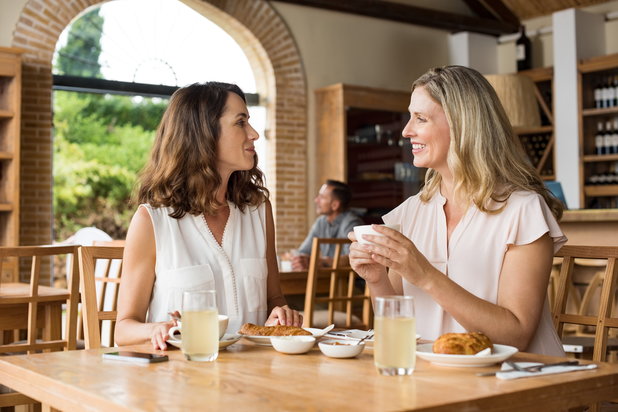An addiction treatment center catalyzes an addict’s recovery journey. Patients are surrounded by support: doctors, counselors, groups and coaches treat the causes, triggers and dual diagnoses that drive their addictions, starting addicts on a path to lifelong sobriety.
But you can’t live in a treatment center forever. Bills accumulate, and let’s face it: you’ve got to get back to life outside of the facility.
When you graduate, your commitment to sobriety will be tested. Just like in the treatment facility, you need a support system to keep you healthy and accountable. Therefore, this is where lay counselors can be crucial to preventing relapse. Let’s look at what they bring to the table.
What is Lay Counseling?
A lay counselor is someone within your community that can provide you with a listening ear, help you make decisions, but does not have a clinical training. Their support is less structured and restrictive than a clinician’s, which means you likely won’t need a formal appointment time to get their help.
Lay counselors are found in a number of environments. They work in groups that help those with medical conditions, such as HIV and AIDS. They help transitory communities established after natural disasters, helping resolve difficulties that arise when many different races, languages, values and attitudes are forced together suddenly.
But perhaps the most well-known environment in which lay counselors operate--and the one which I will be referring to the most--is within churches. Lay counselors work connect to individuals in their parish through religion to provide continued support and spiritual guidance.
How Lay Counselors Help Recovering Addicts
Once an individual leaves treatment, reality hits. They are no longer in a controlled, no-tolerance facility with professionals holding them accountable, nor are they surrounded solely by like-minded people who are trying to achieve their same goal of sobriety. The real world provides a plethora of temptation, triggers and social pressures.
There are numerous thing a recovering addict should do after leaving rehab. For starters, he or she must continue an established outpatient treatment. Yet, while a recovering addict may still see an addiction specialist and participate in group meetings. he or she may need the constantly-available objective support akin to that of inpatient treatment, especially during the addict’s initial adjustment to the outside world. Lay counselors take the role of coach and addiction counselor when a specialist isn’t available. They provide the supplementary support an addict can turn to in an emergency instead of addictive substances.
The Role Lay Counselors Played in My Recovery
1. Support
Counselors provided me with a great deal of emotional and psychological support while moving through the initial and continued stages of the recovery process. Within the church, some provide spiritual support, depending on their training and education. These individuals focus on the following:
- Identifying and clarifying problems
- Exploring and expressing feelings
- Coping with stress
- Finding freedom from spiritual, psychological, and interpersonal conflict
- Developing self-acceptance and spiritual awareness
- (Within the church) helping counselees live in accordance with biblical teaching
2. Emotional Recovery
Lay counselors provided me with the support needed to sift through many of my surfacing feelings and cognitions, long-suppressed in active addiction. Additionally, they helped me heal from past traumas and reframe those experiences.
3. Sounding Board
Lay counselors listened while I processed the frustrations of my life and the recovery process. There’s nothing like having an entire hour with an individual devoted to listening to you, objectively, while you share your story.
4. Grief Counseling
Lay counselors helped me cope with and move through the grief process associated with letting go of active addiction and all it entailed. And later, when I lost someone I loved, I could no longer use additive substances to numb the resulting grief. Without support, I don’t know how I could have eventually handled traveling with grief as a sober woman. With the right support, I worked through the stages of grief without relapsing.
5. Family Dynamics
Lay counselors made me confront the role of my family dynamic in my addiction. They helped me address my codependent, enabling and toxic relationships. In removing these from my life, I removed the triggers associated with them, and could continue my journey to lasting recovery.
6. Spiritual Growth
Of course, the most toxic relationship I had was with myself. Addiction stunted my personal and spiritual growth, and the lay counselors within my church restarted it by reviewing biblical teachings with me and helping me develop a connection to a higher power and to live my life to honor the body and spirit that connects me to God.
7. Accountability
My counselors made me personally and spiritually accountable for my decisions. They were objective relationships; they would not make exceptions or excuses for me. Instead, they would carefully confront me and support me as I aimed to do better.
8. Empowerment
Lay counselors helped me achieve my be a survivor of the disease of addiction, not a victim of circumstance or genetics. They believed in my potential and, in doing so, showed me there was potential to believe in. I was worthy of being counseled by prior-strangers in my community and, more importantly, I was worthy of being saved by myself.
If you or someone you know is seeking help from addiction, please visit our directory of treatment centers or call 800-772-8219 to start the road to recovery.








